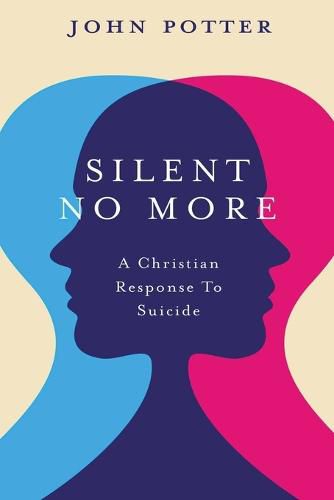Readings Newsletter
Become a Readings Member to make your shopping experience even easier.
Sign in or sign up for free!
You’re not far away from qualifying for FREE standard shipping within Australia
You’ve qualified for FREE standard shipping within Australia
The cart is loading…






This title is printed to order. This book may have been self-published. If so, we cannot guarantee the quality of the content. In the main most books will have gone through the editing process however some may not. We therefore suggest that you be aware of this before ordering this book. If in doubt check either the author or publisher’s details as we are unable to accept any returns unless they are faulty. Please contact us if you have any questions.
Suicide is a leading cause of death. More people die from suicide than in all of the combined wars, conflicts, and natural disasters across the globe. Suicide is also an issue that few seem willing to discuss. Suicide remains a hidden or taboo topic. Stigma, culture, and theological misunderstanding are contributing factors to this reality.
Silent No More: A Christian Response to Suicide examines how scripture, spiritual practices, and congregations can address suicide. Religion / spirituality is frequently listed as a strong protective factor against suicide. Years of research, studies, and literature show that religion / spirituality is even stronger when beliefs, religious activity, and community are engaged to support people at risk of suicide. Religion / spirituality must be fully integrated into suicide prevention plans and efforts if a total wellness approach of spirit, mind, and body are to be utilized.
The book also addresses that Christian congregations must have love-soaked people who are ready to provide community and fellowship to hurting people inside and outside of the church doors. The author concludes the book with seven steps that will enable congregations and churches leaders to help those who are at risk of suicide. These strategies can make simple strides to address suicide and help hurting people in any community.
It is time for Christian communities to rejoin the battle against suicide. Christianity has a rich legacy of caring for people in crisis, historically having started hospitals, mental health centers, and compassionate care ministries. There is a way for Christianity to regain its voice and care for people at risk of suicide. It is time for Christians to be silent no more.
$9.00 standard shipping within Australia
FREE standard shipping within Australia for orders over $100.00
Express & International shipping calculated at checkout
This title is printed to order. This book may have been self-published. If so, we cannot guarantee the quality of the content. In the main most books will have gone through the editing process however some may not. We therefore suggest that you be aware of this before ordering this book. If in doubt check either the author or publisher’s details as we are unable to accept any returns unless they are faulty. Please contact us if you have any questions.
Suicide is a leading cause of death. More people die from suicide than in all of the combined wars, conflicts, and natural disasters across the globe. Suicide is also an issue that few seem willing to discuss. Suicide remains a hidden or taboo topic. Stigma, culture, and theological misunderstanding are contributing factors to this reality.
Silent No More: A Christian Response to Suicide examines how scripture, spiritual practices, and congregations can address suicide. Religion / spirituality is frequently listed as a strong protective factor against suicide. Years of research, studies, and literature show that religion / spirituality is even stronger when beliefs, religious activity, and community are engaged to support people at risk of suicide. Religion / spirituality must be fully integrated into suicide prevention plans and efforts if a total wellness approach of spirit, mind, and body are to be utilized.
The book also addresses that Christian congregations must have love-soaked people who are ready to provide community and fellowship to hurting people inside and outside of the church doors. The author concludes the book with seven steps that will enable congregations and churches leaders to help those who are at risk of suicide. These strategies can make simple strides to address suicide and help hurting people in any community.
It is time for Christian communities to rejoin the battle against suicide. Christianity has a rich legacy of caring for people in crisis, historically having started hospitals, mental health centers, and compassionate care ministries. There is a way for Christianity to regain its voice and care for people at risk of suicide. It is time for Christians to be silent no more.